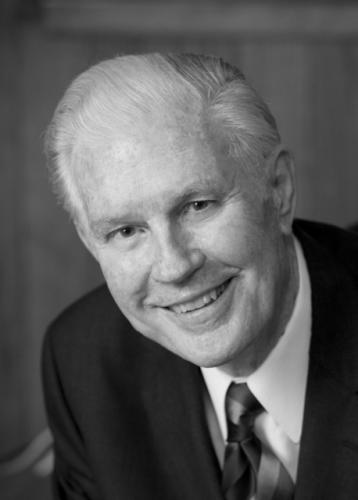Wendell Bell in ‘Containment’

Koerner fellow Wendell Bell, professor emeritus of sociology, assisted Peter Galison and Robb Moss with the creation of Containment, a film which addresses radioactive waste and the challenge of storing some of the deadliest matter ever produced. Bell worked behind the scenes with the writers presenting his work as part of a team hired by Sandia National Laboratories to find ways to make the Waste Isolation Pilot Plant (WIPP) in New Mexico safe for the storage of nuclear waste for 10,000 years.
Bell’s involvement in the project at WIPP was a three-phased effort. First, WIPP designers and planners strove to make WIPP (a former salt mine) safe and impenetrable. Second, intrusion teams were hired to identify possible futures in which inadvertent human action would result in penetration into the WIPP repository, allowing deadly radiation to be released into the accessible environment. As a part of one of the intrusion teams, Bell was briefed at WIPP about the existing safety features and given several months to prepare the team’s intrusion scenarios. The teams then returned to WIPP and reported on their scenarios, which were spread over the 10,000-year period, starting with the present. Third, marker teams were hired whose task was to devise warnings to prevent the inadvertent human intrusion into WIPP in all the intrusion teams’ scenarios that had resulted in penetration of the site. In addition to the WIPP story, the film ties in an account of the accident at Fukushima nuclear power plant in Japan and of a radiation-contaminated region in the United States (Burke County, Georgia). Containment aired on Independent Lens on January 9, 2017 and can be seen online.
Professor Bell joined the Yale faculty in 1963, served as chair of the department of sociology, helped to found the department of African American studies, directed the Yale Comparative Sociology Training Program, and was a senior research scientist in the Yale Center for Comparative Research. Prior to that, he was on the faculties of Stanford University, where he directed the Stanford Survey Research Facility, Northwestern University, and UCLA, where he headed the West Indies Study Program. He was also a fellow at the Center for Advanced Study in the Behavioral Sciences in Stanford. During World War II, he was a naval aviator and participated in a tour of duty in the Philippines. His fields of interest are futures studies and social change, human values and global ethics, social stratification, and ethnicity and nationalism (Caribbean, Western Europe, and comparatively worldwide). His early research was on the social areas of American cities, focusing on social class, race, and family life. Later, he studied elites, nationalism, and social change in the new states of the Caribbean and served as president of the Caribbean Studies Association. He has been a futurist for four decades and was a gubernatorial appointee to the Commission on Connecticut’s Future. He continues to work as a futurist-sociologist consultant and, in 1999, participated in the work of the U.S. Commission on National Security/21st Century. He is the author or co-author of ten books and more than 200 articles, chapters, and book reviews. In 2005 the World Futures Studies Federation awarded him a Lifetime Achievement Award in recognition of his many contributions to the field of futures studies, and in 2008 the Association of Professional Futurists selected his two-volume Foundations of Futures Studies as one of the ten most important futures books of all time. In 2014 Bell received an Inaugural Lifetime Achievement Award from the International Sociological Association Research Committee on Futures Research “for most distinguished contributions to forward-oriented sociology.”